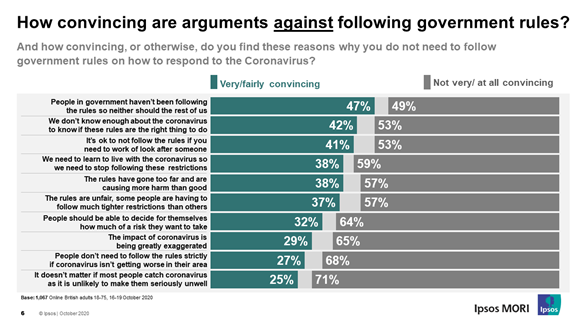
The "Culture War" is much more a minority sport in Britain than in America, but the 12% who produce half of social media content are rather more up for that.
More in Common have a major report out this week, previewed in Observer. @MiC_Global for info
theguardian.com/society/2020/o…
More in Common have a major report out this week, previewed in Observer. @MiC_Global for info
theguardian.com/society/2020/o…
More evidence of the "balancers" on identity issues
3/4 people worry about hate speech crossing the line *and* 3/4 people worry about political correctness going too far too.
6/10 see something in idea of 'white privilege' and 6/10 think we can be over-sensitive about race.
3/4 people worry about hate speech crossing the line *and* 3/4 people worry about political correctness going too far too.
6/10 see something in idea of 'white privilege' and 6/10 think we can be over-sensitive about race.
That topline finding about amplified + exaggerated polarisation reinforces this from our National Conversation on Immigration: most people are balancers - but online is *much* more polarised
(blue line = public views of immigration)
(orange line = self-selecting online sample)
(blue line = public views of immigration)
(orange line = self-selecting online sample)

What is unusual about @MiC_Global is that they are doing in-depth research with similar types of questions in the USA, in France, in UK and elsewhere - so are esp well placed to offer insights into both similar/different drivers of political and social polarisation 

'Both sides of a culture war rely on exaggerating the threat of the other. Both want us to think that every person who is ‘on the other side’ to them has all these opposing views. The truth is many of these debates just pass most people by" says @dixontim
theguardian.com/society/2020/o…
theguardian.com/society/2020/o…
Report highlights climate change & gender equality as two issues where there is a much broader societal consensus in UK than US. (That 85% finding suggests focusing on activities of climate 'deniers' is a distraction from policy, political & public challenges on the issue) 

Gender equality as social consensus, more than culture war
https://twitter.com/sundersays/status/1312784096477810690
• • •
Missing some Tweet in this thread? You can try to
force a refresh

















